BTW, a note to our Serb readers (and I know you're out there!): I challenge you, any of you, to PROVE that this article, or any other on this site, is a lie. And by prove, I don't mean come up with some histronic screed about "Anti-Serb propaganda", or shout "MSM! MSM!" ("Main Stream Media, for those of you not familiar with the term....) like Gomer Pyle running after Barney Fife screaming "Citizens arrest! Citizens arrest!", or give me some "Yeah, well what about....?" (Fill in your favorite criminal, violent, or racist action, real or imagined, supposedly committed by Albanians.) This is not "opinion" I've printed here, it's facts. And I can back it up. If you're going to rebut it, I want to see your FACTS. PERIOD. Whether it's a rebutting piece, or a "fisking", doesn't matter, so long as you have facts, and can back them up. I'll be waiting. Though I suspect it'll be a long wait....
**********************************
The Parallel University
A Journey Through Kosovo's Secret Classrooms
THE THING ABOUT CONFLICT zones is, there is never any toilet paper. A journalist usually resorts to the work of colleagues. But in the bathroom of the Kastrati household in Prishtina, the capital of Kosovo, a province in the former Yugoslavia under the control of the Serbian government in Belgrade, I find no familiar triangles of newsprint. Instead, there is a hose that comes out of the wall and stretches through the back of the toilet, turning it into something like a bidet.
"I'm sorry, we ran out of toilet paper," says Arben "Benny" Kastrati, at twenty-six the oldest male in this family of four and a budding movie star -- he had a supporting role in the film Before the Rain, which won a Golden Lion at the Venice Film Festival this year. He apologizes as if someone had just used the last piece a minute or two ago. A more plausible explanation, however, is that like almost all Albanians in Kosovo -- two million people, or 90 percent of the province's population -- the K astratis have run out of money to buy toilet paper, three kinds of which are for sale at a nearby store. Since 1990, when the Serbian regime imposed a policy of apartheid, enforcing it through an extraordinarily visible police presence, regular arrests, a nd killings, more than 80 percent of Albanians have lost their jobs. Most of the rest work for wages that do not allow for such luxuries as toilet paper.
Benny's mother, Lidia, makes forty German marks a month as a primary-school teacher (German marks are the hard currency of choice here), an amount that will buy you twenty hamburgers with nothing on them or about one hundred rolls of toilet paper. In the old days she made 300 marks -- and that was before wartime hyperinflation drove prices up. Like all Albanian teachers, she lost her job in 1991. Now she gets paid by the government of the Republic of Kosova -- a shadow government formed by Albanians afte r the Serbs usurped all official positions in government, industry, and education. (Kosova is the land's Albanian name.)
Led by a fifty-year-old president, Dr. Ibrahim Rugova, a former literary critic who was voted into office in 1990, and a parliament that never gets to meet, the Republic of Kosova is an extraordinary enterprise: a full-blown "parallel society," not dissim ilar to the one outlined in a key pre-glasnost document, The Parallel Polis, by Czech dissident Vaclav Benda. Instead of taking on the Serbs directly, Kosova's Albanians have chosen to create an entire clandestine civic infrastructure, including we lfare, medical care, and taxation -- Albanians all over the world voluntarily contribute 3 percent of their income to the Kosova treasury. The mechanics of this vast underground operation are largely kept secret, but its most successful enterprise is repu ted to be a comprehensive educational system that has primary schools, secondary schools, and a state-college-sized university with 25,000 students and more than 900 instructors.
IT TAKES SEVERAL PHONE CALLS from the headquarters of the Democratic League of Kosova, the leading of Kosovo's three or four active Albanian parties, to locate the room where the first-year archaeology and second-year ancient history exa ms are to be given by Edi Shukria, the vice-dean of the parallel University of Prishtina's faculty of philosophy and a member of Rugova's government. Half the undergraduates didn't know where the exams would be held, either: two places had been announced, and after Shukria made her final selection, a student who'd been waiting at the spot that had been chosen was dispatched to fetch the group that had gathered at the other site -- a full hour away by foot. Shukria based her choice of locale on the most pr agmatic criterion imaginable: there were more police near the other classroom.
Of all the basements and storefronts in private buildings where university classes are now held, Shukria's choice is one of the better ones: not too small, not too dirty, not too damp, though it is dark. In Prishtina, windows are not a source of light but a way for the police to see in. Still, the space is not large enough to hold all the students, so about twenty of them are waiting in a nearby garden for their turn to take the tests. They are the quietest twenty-year-olds in the world. I don't notice th em until I am at the gate.
The delicate art of becoming invisible is now one of the most important elements of a Kosovo Albanian's education. Vjosa Dovruna, a thirty- nine-year-old pediatrician and human rights activist, tells me what she overheard while driving a friend and the fr iend's six-year-old daughter to the girl's first class. "Now, little Dita," the mother said to her daughter in the backseat, "if the police come to beat you today, don't you say anything and don't you cry. You show them you're brave." At the school buildi ng, Dovruna witnessed an entire crowd of parents dispensing the same instructions.
Serbian police have shown that they are not above killing children: In July, one of the victims of police violence in Kosovo was a six-year-old boy, shot in what Serbian authorities have called an accident -- the boy was riding in his father's car, and th e police mistook the father for a smuggler. (The father survived.) Kosovo Albanian human rights activists, who have been logging similar "accidents" at an average of two a month, dismiss that explanation with an incongruous laugh. Such "accidents" happen to Albanians whether or not they violate laws, but since Kosovo's parallel education system requires that 400,000 people trans- gress against the new Serbian laws, the police maintain a terrifying degree of pressure on everyone. According to the Albanian Teachers Association, 3,300 teachers were detained and interrogated by the police and at least two directors of primary schools were killed over the past two years. "It's a very hard way to get educated," Dovruna tells me in the deadpan manner Kosovo Alba nians seem to have adopted to overcome the inadequacies of language. "Every beginning and end of the school year they get beaten up by police daily."
Serbian authorities make no attempt to hide their efforts to crack down on the parallel education system. Some acknowledge it in a tone of exhausted resignation; others, like Kosovo's Serbian secretary of education, Marinko Bozovic, derive a certain glee from it. During my visit with him, he shoves the grade reports and diplomas confiscated from students at me as though they were damning evidence in a murder case. "Look!" he exclaims in happy outrage, his entire bald head having acquired an aroused glow. "They have their own stamp! They write 'Republic of Kosova'!"
VERA KASTRATI, BENNY'S twenty-two-year-old sister, takes me on a tour of Prishtina's secret classrooms on the joyous day after she passed her last exam. (She now has one of those offending "Republic of Kosova" diplomas: a degree in Engli sh language and literature.) "This is the worst part of town," she explains as we start on a winding street up a steep hill. The people in this neighborhood are poorer than in the rest of Prishtina, but the advantage, she says, is that there are fewer Ser bs and fewer police. "Also," she adds, "it's more like a labyrinth."
Prishtina's narrow cobblestone streets hark back to five centuries of Ottoman rule -- most Kosovo Albanians converted to Islam during this period, like their neighbors in Bosnia. There are also a couple of the too wide central avenues that testify to deca des of communist rule. Five times a day, the straining voice of the muezzin carries through the streets around the mosque, which sits across from a sprawling government building, now guarded by several Serbian policemen armed with machine guns. Next to it is the city's most obvious landmark: a group of lonely-looking, faceless stone figures crowded around an obelisk. It is the Monument to the Friendship of the Turkish, Albanian and Serbian Nations.
Students walk to school alone or in pairs, so as not to give away the location of classrooms, Vera explains. She apologizes for taking me on such a long and grueling journey, one that leads through dust-filled streets under the merciless mountain sun. Wal king is another major part of becoming educated these days: buses don't travel the cobblestone labyrinth, so it is not unusual for students to walk an hour or two to get to class.
Our tour includes the best and worst of the parallel university's classrooms. The first one is the best, says Vera: "When I hear that we have an exam here, I jump for joy." The classroom is a storefront in a brick building, quaintly tidy on the outside. L ace curtains cover the windows, concealing a room about fifteen feet square. Students' seats are low benches stretched along the walls: long gray boards placed over clay bricks. The only desk is the professor's -- a simple table decorated with a tableclot h and a nondescript flower vase. The light fixtures are set in bare cement. "It gets very cold here," says Vera. Kosovo has the most severe winters in the former Yugoslavia, with temperatures reaching minus forty degrees Fahrenheit. Vera didn't manage to attend class that often; the cold made it hard to concentrate.
She's never skipped an exam, however -- a feat sometimes difficult to accomplish. As she unlocks the door to another classroom -- about a fifteen-minute walk up the hill from the first, and in worse condition -- Vera tells me that "the smell is [often] so bad that when I had an exam here I could barely stand it because I could not breathe." It's the mold. The space, which may also have been a storefront once, is a dark room, about ten by twenty feet. At the far end of it gapes a doorless bathroom, crawlin g with unidentifiable insects.
We are at the edge of Prishtina now: about 300 yards down the street, the buildings end and the mountains begin. Across the street is what Vera says is the worst classroom; it's the darkest one yet. The windows are concealed by a rickety wooden fence. We unlock a steel gate, then unhinge a side door that's built not to be noticed, and squeeze into a run that is about 2 feet wide -- the space between the fence and the storefront's glass doors. There are two classrooms side by side, as long and narrow as th e last place we visited. The benches are pushed so close together that even small children could not use them comfortably; they are made of the same long boards, this time placed over cases of empty bottles that are covered with dust.
On the far wall there are three large sheets of cardboard; each holds about forty glossy photographs of recent graduates in French and philology. The men are in suits, the women in traditional white blouses and red vests; the teachers, who stand on an ele vated platform, look on proudly. Every photograph is captioned with a name, and at the top of the philology board I spot Vera and Benny's uncle, Agim Vinca, a leading Albanian poet. We saw him at a café earlier that day; he was in a bad mood, havin g just been sentenced to thirty days in prison for going across the border to Albania, where he bought Albanian-language books (no longer available in Kosovo) and met with the translators of Sartre and Camus. He received his sentence by post in the mornin g, and was waiting to be picked up by police.
Isn't it dangerous to hang these pictures here? I ask Vera.
"Yes," she shrugs. "But they have to be hung somewhere. Before, they used to hang them in the shops." Now, Albanians have lost many of their shops. Hanging such images in public would be too risky, anyway.
THE STUDENTS IN EDI SHUKRIA'S classroom are eager to explain just how risky their lives are. Frashër Demaj, a lanky twenty-one-year-old with close-cropped dark-brown hair and eyes so dark they look damp, relates in painstaking Engli sh that on his way to Prishtina from Peja, a town twenty-six miles away, the bus he was riding was stopped by police, who demanded the passengers' documents. "They know I am a student because of my age," explains Demaj; he was afraid they might guess that he was going to Prishtina to take an exam -- which was, in fact, what he was doing. "They asked Demaj, 'Why do you study when you have no university? This is not your town.'" Demaj had already been beaten once by the police, so he preferred to avoid a co nfrontation. Besides, he wanted to protect his "index," a notebook in which a student's grades are entered. "I do not study anything," he answered. "I am in a computer course." Other times, when he cannot deny that he is a university student, Demaj inform s the police that he is studying biology, "because history is very dangerous," he tells me.
Shukria nods. History -- particularly local history -- is an explosive subject for the Serbs. The original historical dispute over this land goes back to the legendary Battle of Kosovo, in 1389: the Serbs believe they won it, while most of the rest of the world thinks they lost it. (That Turkey proceeded to dominate this former Serbian territory for centuries does lend credence to the world's version.) In any case, Serbs consider Kosovo to be the cradle of their civilization, and their most important hist orical site. The versions of history put forth by Albanians -- who believe, for example, that they are descendants of the Illyrians, a people indigenous to the region -- upsets Serbs to no end.
A second student from Peja, Din Kastrati (not one of the Prishtina Kastratis), a red-haired twenty-six-year-old with a tired, colorless face, tells us his story. With Shukria translating, he explains that he is the president of the town's youth organizat ion. "I was called to the police station three times," he says. "On October 17, 1993, I was mistreated for three hours. They asked for guns, they asked about my activity in the Youth Forum, and about the university and about studying, and they asked, 'Why are you studying? Nobody recognizes your degree.' They asked for my index. Then, after letting me go, they came looking for me again, and for three months I did not live at home. I went underground." He eventually fled to neighboring Macedonia, then trav eled across the mountains and made his way back to Prishtina: "I want to study, and I didn't want to lose a year at the university, so I came only for exams."
"So why are you studying?" I ask, and it is all I can do not to echo the police and add, Your university is not recognized. And then to come out with the questions that nag at me throughout my visit here: What will you do as a 30-year-old in hid ing with an unaccredited diploma in Albanian history? And who has put into young people's heads the idea that the best response to being beaten up by the police is going to class?
"'We recognize our university,'" is what Din Kastrati says he told the police. "After that, the police started to beat me up. One of the ways they did this was to lay me on a big table and beat me with one-and-a-half-meter canes."
It's as simple as that: Kosovo Albanians not only recognize their university, they recognize themselves in it. Everywhere else they look -- on TV, for example, where all the broadcasts are in Serbian -- they see themselves represented as subhuman. Serbian rhetoric has portrayed the Serbian-Albanian conflict as the struggle of "a people with nonpeople." Or, as a distressingly beautiful twenty-one-year-old Serb woman I meet on the University of Prishtina campus tells me, "They are Muslims, you understand?" Batting translucent eyelids, this second-year library-science student also says: "Prishtina is big, big shit. [The Kosovars] are peasants, but don't live in a village -- they are bad people. They don't want to go to our schools -- I don't know why. They d on't want to go to school because they are very stupid, believe me. What can they do? They can work in a bar and make coffee, they can work in the toilets and clean. They don't live like people. They don't take water and wash themselves."
I realize that the hose in the Kastratis' toilet is testament not only to one family's wartime ingenuity but to the desire of all Albanians to prove themselves better than the Serbs' image of them, perhaps better than the Serbs themselves.
SRETEN UGRETIC MAY BE the most open-minded Serb I meet in Prishtina. A thirty-three-year-old professor of philosophy at the Serb-occupied University of Prishtina, he also works at George Soros's Open Society Fund, a charitable organizati on that the Belgrade government has made every effort to disable. He calls the thirty-six-year-old Albanian Juljeta Vuniçi, the secretary of the Open Society Fund, one of his closest friends. Ugretic came here two years ago from Belgrade, where he could not find an academic post. He feels bad for the lone, constantly harassed Albanian professor in his department. Ugretic teaches ethics, so we talk ethics.
Teaching "is a strictly professional kind of work," he tells me, reclining in a swivel chair, his foot on the back of the desk where Vuniçi is sitting; she remains stone-faced throughout this conversation. "When I came, the 'cleansing' of the Alban ian staff was done," Ugretic continues. "It was a very clean situation -- only Serbian staff was there. I only hear about what it was like before. So I don't have this [ethical] problem, because I just came here to work. Sometimes I ask myself how I would react. These people [doing the 'cleansing'] were just little parts in big machine. It would have been dangerous for them to do anything different because they would have been afraid to lose their jobs."
I ask Vuniçi what she would have done in Ugretic's shoes. "I would have a big moral problem," she replies reluctantly but firmly. "I can say that I would never do it."
"If all our Serbian colleagues thought the way you and I do," Ugretic objects, "there would be no staff left to teach the Serbian pupils."
"If there was unanimity, maybe the system would think, 'There is something wrong; we must do something differently,'" Vuniçi ventures.
"That is utopian thinking," Ugretic says, fuming in a mild-mannered way. "If the Albanians were in the place of the Serbs, they would react the same way. I am sure of that."
Utopian thinking is a prerogative of the oppressed -- and the moral high road is theirs for the taking. According to the Council for the Defense of Human Rights and Freedoms in Prishtina, a group that documents the abuse of Albanians by the Serbian police , the tally for the first six months of 1994 was 4 deaths; 5 people wounded; 77 sentenced to prison; 420 police interruptions of educational and cultural activities; 525 attacks on activists; 1,719 cases of torture and police abuse; 2,068 arrests and inte rrogations; and 6,154 property searches. Serbian persecution of the Albanians is not particularly new: it dates back at least to 1981, when Communist Yugoslavia imposed martial law on Kosovo to quell a rash of Albanian student demonstrations -- a developm ent that went virtually unnoticed by the rest of the world, preoccupied as it was with similar events taking place in Poland.
But since 1990, Kosovo has remained in what Albanian journalist and philosopher Shkelzen Maliqi has termed a state "neither of war nor of peace but also of more war than peace." Four years ago, the Albanians seemed to choose peace spontaneously; thwarting all prognoses of war, they responded to the violent Serbian takeover with silent marches through hundreds of miles of snow-covered mountain. In an essay on the nonviolence of the Kosovo Albanians, Maliqi wrote that they have "proved not only that the Alb anians have been defamed but more significantly that they have collectively changed for the better and indeed become better and more civilized than their tormentors."
EJUP STATOVCI, DOCTOR OF JURISPRUDENCE, lives in the high-rise apartment building directly opposite the University of Prishtina campus, though, of course, he no longer works there. From his window, he can see the university library. Doub tless the most remarkable structure in the city, the library resembles a dozen mosques squeezed together, and it is also closed to Albanians. Professor Statovci can also see University Square, which has become a desolate construction site: the largest Eas tern Orthodox church in the Balkans is to be built in a space originally cleared for several university buildings. He can also observe the arrival and departure of the new Serbian professors, imports from Belgrade delivered daily by bus from the Hotel Gra nd, their temporary quarters. Up one street, a complex of 240 apartments and 40 single-family homes are being built; they will eventually house the new teachers. It turns out that the construction project is of such an urgent nature, so very important, th at it kept the Serbian rector of the university too busy to meet with me.
Professor Statovci is busy, too; as the rector of the underground university, he spends his days faxing colleagues throughout the West, publicizing the school's fate and issuing pleas for help. Statovci says that some European universities have been quite generous with help, including fellowships for visiting parallel University of Prishtina professors. He has written to American university associations many times, but, he tells me with exaggerated politeness, "I'm afraid to say that I never got any answe r."
The process of forcing Albanians out of the education system began in 1989, when primary and secondary schools -- which until then had been teaching about 90 percent of the students in Albanian and 10 percent in Serbian -- were further segregated. Serbian and Albanian children now have to study in shifts and in different classrooms. In March 1990, about 7,000 schoolchildren showed up at medical centers around Kosovo, complaining of stomach cramps. The Serbian authorities claimed that it was a case of mass hysteria, while Albanian human rights organizations believe the children were poisoned. The following school year, the Serbian authorities decreed that all instruction had to take place in Serbian; 70,000 teachers were fired for refusing to comply, and 3 45,000 Albanian schoolchildren stopped going to school altogether.
The "cleansing" of the University of Prishtina began in earnest in the summer of 1991, when the Serbian authorities imposed so-called emergency measures, replacing all Albanian university administrators -- including the elected rector and deans -- with Se rbs. In the first few months of the 1991-92 school year, all but 15 of the more than 900 Albanian university instructors lost their jobs. Here, the reasons were more varied. Shukria, for example, lost her job for refusing to administer a Russian oral exam ; she speaks no Russian. Agim Hyseni, a professor of sociology and now president of the Union of Education, Science, and Culture in Kosova, lost his job when he failed to show up once. Isa Bajcinça, an Albanian-language teacher who had worked at th e university since it was founded in 1970, lost his job because too many students signed up for his course -- 250 instead of the planned 40.
Serbian officials insist that the Albanians abandoned the official education system voluntarily. Albanian students are welcome to apply to the University of Prishtina, the officials say -- as long as they are willing to study in Serbian. Actually, Albania n students don't have this option because university rules, posted in the lobbies of the hollowed-out campus buildings, clearly state that only graduates of Serbian-language high schools may apply. Bozovic, the zealous Serbian secretary of education, admi ts that graduates of parallel high schools cannot enter the university: "For three years, they have been studying according to their own program. It's a bad program." In fact, it is the same program Kosovo schools used before 1990, and back then it was go od enough to allow them to gain university admission not only in Prishtina but throughout the former Yugoslavia.
By the late fall of 1991, Kosovo's ethno-political quagmire, never having reached the boiling point of war, had congealed into the hideous solid it is today, and Albanians grew convinced that they would never see the insides of their school buildings agai n. The parallel education system, like the Kosovo Albanians' entire resistance effort, seems to have organized itself spontaneously, with teachers, students, parents, and the owners of the many private homes that would hold the schools coming together at no one person's initiative.
According to the Statovcis, theirs was the first household to host classes for the first classes of the parallel system. The Statovci's middle daughter, Brikena, now twenty and a student in the parallel University of Prishtina's electrotechnology departme nt, says she started them. "One day we would have math and the teacher would come here," says Brikena, gesturing around the none-too-opulent living room. "And the next day we would have biology."
Ejup Statovci, a civil-law expert educated at the universities of Zagreb, Ljubljana, Oxford, and Harvard, was elected rector of the University of Prishtina on November 26, 1991. One of his first actions, in January 1992, was to petition Serbian authoritie s to grant Albanians access to the university. At about the same time, thousands of university students staged two days of peaceful protests, demanding entry to the university. Benny Kastrati, who, in his capacity as a student dean, was a leader of the de monstrations, recalls that time: "The first day a lot of journalists were there. The first day was okay. The second day we got beat up -- all of us -- and split." Was anyone killed? Benny wrinkles his forehead. "It's hard to remember. It was two years ago . A lot of people were getting beaten and killed."
Ejup Statovci's first arrest followed the petition. "They said I disturbed the order, and apparently I frightened the Serb students and professors," he recalls. He was sentenced to sixty days' imprisonment but was released after eleven, following letters of protest from officials of various European universities. This did not stop the authorities from arresting Statovci three more times, once detaining him for thirty-one days. They always ask the same questions, he says: "Why am I rector, why do I do this kind of work?"
Why would he have wanted to become rector, when his eighth book, a manuscript on human rights laws, remains pointedly unfinished? "Because I like very much my university," Statovci explains. He speaks and moves slowly, creating the impression of a very ol d man who has only now found his calling. His genuinely obsessive passion and the sheer horror he describes make the affected heroicism of his old-fashioned speech painfully touching. "If I have to, I am ready -- if I may say so, madam -- to sacrifice for the university. Myself. For the students, for the faculty. I think my university should be called, madam, the University of Peace -- or Peace of University. My university has kept the peace in this area, has taught civilization, democracy. We do exactly the work a university should do."
AND THEY DO IT, apparently, exactly the way a university should do it. Professors insist that the quality of education has hardly been affected, its content barely changed. Well, sometimes a little: one professor of psychology, Pajazit N ushi, the vice president of the human rights council, shows me a thick photo album filled with snapshots of open wounds and faces of the dead, swollen from beatings, and reluctantly admits that lately he has begun to focus on the subjects of trauma and fr ustration in his psychology classes. Still, he sends me to the university's historians and sociologists for juicy quotes on how the content of an Albanian's university education has changed. They insist that there's nothing to say: it's just education as usual. Shukria says, "It was in 1981 that my Serb colleagues asked me not to teach the history of the Illyrians" -- a people indigenous to this region, whose relationship to the Albanians is disputed. "And I taught it then and I teach it now."
Incredibly, the university has even launched an academic press and two departments since going underground. Statovci proudly demonstrates the first book, The Basics of Electrotechnology, Part II. Then there are the seventy-two titles by parallel-un iversity professors, privately printed last year. Meanwhile, the administrators of the parallel education system are careful not to divulge the details of their work. I learn only that the budget is drawn from voluntary taxes and direct aid from foreign e ducational institutions; that university professors are paid 102 marks a month; that books are passed on from student to student; that funding for new titles is allocated on a triage basis; and that all communication is strictly word of mouth. The adminis trators stress that the system is extremely well organized -- possibly, notes Statovci, better organized than ever before.
Of the people I meet associated with university, only one, a former instructor at the parallel university, criticizes it. Afërdita Surroi, who was an associate professor of German, argued unsuccessfully for shutting the German department, one of the two new ones, because it could not deliver a good education. "Maybe I was too optimistic," she says, "but I did not have the strength to go on.... [The students] have the desire to study, but they study literature -- and they don't have books. They don't have a library, so they have to order books from Germany, but they're too expensive.... I had to walk one and a half hours, so three hours a day I walked, and I was always depressed." She quit after one semester.
Some parts of the university have suffered more than others. For example, the medical school has a hard time, deprived as it is of laboratory facilities and cadavers. But as more and more Albanian doctors have opened back-alley private practices or gone t o work at the city's Mother Teresa Hospital, they have clandestinely taken on student interns.
Vera Kastrati, who attended the old University of Prishtina for her first year of schooling, admits that her studies suffered after the move underground, when she no longer had access to a native speaker with whom to practice her English or to necessary b ooks. "In the first year, I worked harder and I had ambitions and my grades were better," she says as we huff and puff our way up the hill. "Now I don't have any ambitions."
AT THE END OF MY interview with Kosova's president, Ibrahim Rugova, he points out that he is a structuralist who studied semiotics in Paris with Roland Barthes. Not one of the former Eastern bloc's many reluctant intellectual politicians , Rugova has a clear appreciation for politics, but he likes to underscore his intellectual roots. The Parisian theoretician in him manifests itself in the ever-present silk maroon paisley scarf, one end tucked behind the knot of his proper, matching tie, the other draped over the shoulder of his charcoal pin-striped suit. The flamboyant fashion accessory makes an appearance in all the photos lining his office walls, depicting him with various leading politicans around the world. "The French structuralist slogan is, 'Savoir, c'est pouvoir,' " he pronounces as he rises to shake my hand. "That means, 'Knowledge is power.' That is where my knowledge of power comes from."
Entrancing as that sounds coming from a head of state, it is less than convincing as an explanation for the Kosovo Albanians' sustained passion for education. After all, Lenin, who could not have heard of semiotics, declared "Znaniye -- sila," ("Po wer is knowledge"), and he built a society in which power was consistently used to suppress knowledge. Kosovo Albanians are intimately familiar with this form of repression. Following the imposition of martial law in 1981, more than half of all political prisoners in Yugoslavia and 70 percent of those whose sentences exceeded one year were ethnic Albanians. The populations has since established a custom for greeting political prisoners after their release: the doors of the person's home are opened to anyo ne who wants to visit, and all his relatives prepare sweets for the guests. I learn this at Vjosa Dovruna's house, where I am treated to the cakes left over from the celebration for the release of her uncle -- a historian who served eleven years for advoc ating discussion of a future Kosovo republic.
"Uncle is confused," laughs Dovruna. "He hears us talking and he says, 'I spent eleven years in prison for talk like that!' " Uncle does not understand that, nowadays, talk is cheap. In taking away almost everything else Kosovo Albanians had, Serbian pres ident Slobodan Milosevic unwittingly gave them freedom of speech, and it has resulted in a powerful resurgence of intellectual openness. The random nature of the terror makes self-censorship pointless. Instead of the sort of oblique omissions that used to characterize Albanian speech, everyday conversation is now replete with the frank and open expectation of violence. When I note that someone failed to show up for an interview, Dovruna immediately suggests, "He must have been arrested -- our people are n ot so irresponsible." The next day, when the staff at the council office fail to get a particular professor on the phone, a theory is immediately proffered: "He was probably evicted and the apartment given to a Serb."
Adult Albanians can take satisfaction in such talk: every violent incident is further proof of their moral superiority. But younger people, by all accounts, are not sustained by such righteousness. Says Edi Shukria, "I don't know what to explain to my thi rteen-year-old. Sometimes she says, 'What are you doing? It's better to fight. We are human beings. It's better to be dead than to live in this way.' I don't like to talk to the girl, becuase she is at that age where she does not understand nations and pe ople yet."
President Rugova offers the obvious answer: it would be suicidal for Kosovo Albanians to attempt to fight. "Education is the most powerful weapon in the world," he says. "Jews [during World War II] could have picked up arms, but they would have been extin guished immediately. Instead, they created a strong spirit. We have been creating a 'solidarity culture,' just like the Jews."
And just like the Jews, they may face the scorn of a future generation that will see them as having walked obediently toward humiliation and death. What will today's Albanian students tell their children?
Edi Shukria's classroom falls quiet at this question, until a twenty-two-year-old woman offers: "We have to explain that -- " She trails off. "We hope they can understand."
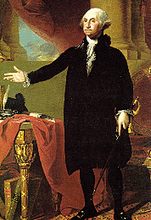
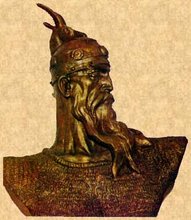
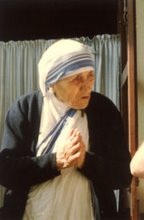







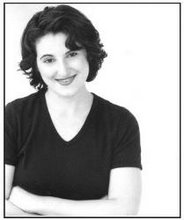
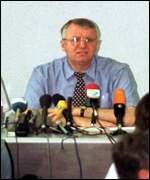
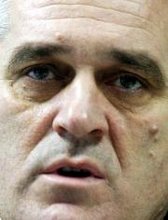








No comments:
Post a Comment